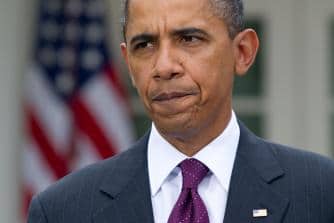Mainstream media has been covering oil in some form or fashion nonstop for weeks. Stories abound over high gasoline prices, oil industry subsidies, and oil drilling. And in spite of all of this coverage and numerous speeches, it is unclear where the Obama Administration stands on the issues.
While on the campaign trail in 2008, Obama told us that he would continue the ban that was in place on new offshore drilling projects in American waters. A year after taking office, he reversed this position and opened up 500,000 square miles of water for oil drilling. Less than a month after opening up these waters, disaster struck as BP’s Deepwater Horizon oil rig exploded and sank, causing millions of gallons of oil to leak into the Gulf of Mexico. After this tragedy, the Obama Administration put a moratorium in place to stop new leases on offshore drilling, going back to his original campaign promise.
Unfortunately, just a year later, the administration has apparently forgotten the lessons we learned after BP’s blowout, as this week they announced that they are not only in favor of opening up more waters for drilling, but are also planning on opening up areas of Alaska for the oil companies to plunder.
So I ask – which Obama do we trust? Campaign Obama? Post-election Obama? Post-BP Obama? Or present-day Obama?
It is incredibly naïve to take any politician for their word during a campaign, and I’ll even go as far as to admit that viewing the issues from outside of Washington may not grant the full picture of the issue, but all of the available research tells us that even if we were to open up every available inch of land for oil drilling, it would do nothing to get us off our foreign oil addiction, or reduce the prices we’re paying at the pump.
The oil-loving Bush Administration actually did a wonderful job proving how little the impact would be if we opened up the Alaskan National Wildlife Refuge (ANWR) for oil drilling. According to their own estimates, the oil would take about a decade or more before it even reached the market, and at that point might bring the price of oil down by about 50 cents per barrel at its peak. That translates to a reduction of about 1 to 3 cents less per gallon of gasoline at the pump. They estimated that there are roughly 10 billion barrels of oil in the wildlife refuge, and since the US consumes 6.6 billion barrels a year, despoiling that wild public treasure would only supply enough oil to completely fuel the United States (no imports or other sources) for about a year and a half. After that, the well is completely dry.
The Gulf of Mexico oil reserves don’t offer much to get excited about either. According to the U.S. Minerals Management Service, the best estimates say that there could be as much as 20 billion barrels of oil in the Gulf (again, at best.) This means that the Gulf could fully supply America for maybe 3 years, if the estimates are correct.
The facts tell it all – the only group that will benefit from increased oil drilling in America is the oil industry. Those of us who aren’t a part of that club will see absolutely no benefit from increased domestic drilling.
But while Americans have been rightly focused on the fact that oil companies are reaping billions of dollars in subsidies from the federal government every year, they’ve turned a deaf ear to the issue of drilling. The U.S. Senate narrowly defeated a measure this week to expand drilling, but with our president pushing for more, and a Republican-controlled Congress pushing even harder, the very leaders who should be working to kick America’s dirty and deadly oil habit are instead solidifying our addiction.
Subscribe to our newsletter
Stay up to date with DeSmog news and alerts






